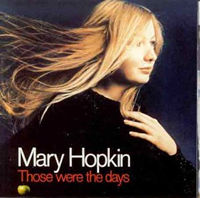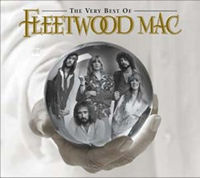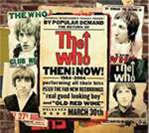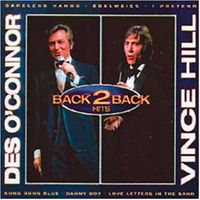Jason Maloney reviews
V o l u m e # 1 7 Chart Date: Week Ending 14th May 1969 Online Date: 13th May 2004

Those Were The Days
Beatles protege Mary Hopkin, the first signing to the band’s Apple label, had just spent three weeks at #2 with Goodbye. Initially, it was Desmond Dekker & The Aces‘ The Israelites which denied it top billing. Goodbye now dropped to #5 – swapping places with My Sentimental Friend by Herman’s Hermits, while The Israelites was still in the top 10, falling gently from #6 to #8.

Fleetwood Mac
At #6 was the single which continues to hold the title for most weeks on the UK chart of all-time. My Way by Frank Sinatra, up 3 places from #9, would soon peak at #5 but eventually registered an incredible 124 appearances on the chart before bowing out.
Not averse to holding a few longevity records of their own, Simon & Garfunkel‘s latest opus The Boxer was climbing from #15 to #9. Throughout the first half of the 1970s, their Greatest Hits set would dominate the UK album chart while Bridge Over Troubled Water clocked up in excess of 300 weeks on the Top 100.

Classics-in-the-making included I Heard It Through The Grapevine by Marvin Gaye (still charting after 14 weeks), Smokey Robinson & The Miracles’ Tracks Of My Tears (advancing to #30 on its second week; it would ultimately reach the Top 10), and Jackie Wilson‘s Your Love Keeps Lifting Me Higher And Higher (new at #39).
Harlem Shuffle, at #13 and on its way down the chart for Bob and Earl, would return to the top 40 in 1986 thanks to the Rolling Stones. The song at #11 – Dizzy by Tommy Roe – went on to top the chart for a solitary week inbetween The Beatles‘ Get Back and The Ballad Of John & Yoko. It also became a UK #1 in 1994 for Vic Reeves & The Wonder Stuff.

Back to Back
(DVDfever.co.uk Dom adds: “How come all the people reviewing Des’ album (right) are talking about Oasis?!”)
Page Content copyright © Jason Maloney, 2004.
Reviewer of movies, videogames and music since 1994. Aortic valve operation survivor from the same year. Running DVDfever.co.uk since 2000. Nobel Peace Prize winner 2021.
